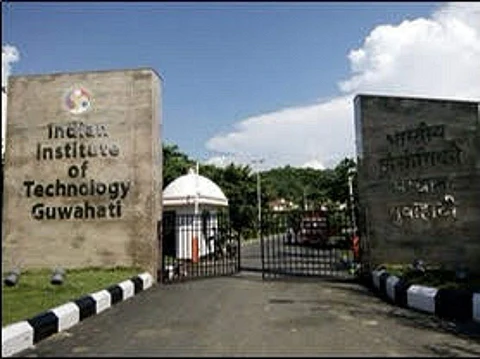

Indian Institute of Technology Guwahati researchers have conducted extensive scientific field research for Eri and Muga Silk from a Design Management perspective. Among the first such reports in this sector, the final report has already been accepted by the World Bank consultants.
Titled ‘Diagnostic Study on Weaver’s need in respect of Eri and Muga Silk,’ the research output of this study will play a very significant role in formulating development strategy in this sector. The research team could gather and demonstrate very insightful interpretations on the basis of a huge amount of field-level data. The Assam Rural Infrastructure and Agricultural Services Society (ARIAS), Government Assam, is keen to implement the strategies proposed in the report. This project is a strategic contribution of the Department of Design, IIT Guwahati, towards the socio-economic development of Assam.
The study was conducted by Pratul Ch. Kalita, Associate Professor, Department of Design, IIT Guwahati, and Amarendra Kumar Das, Department of Design, IIT Guwahati. Highlighting the focus of this landmark study, Pratul Ch Kalita, Department of Design, IIT Guwahati, said, “It is a very detailed study on Eri and Muga silk under the aegis of World Bank-financed Assam Agribusiness and Rural Transformation Project (APART). The project primarily focuses on the study of the existing Design Value Chain of Eri and Muga Silk in Assam, starting from weaving (supply-side – value creation) to marketing (demand-side – value delivery), and formulation of Design Management Strategy to align demand and supply.”
The survey, which encompassed 1,282 weavers, was carried out with primary data collected through structured questionnaires for weavers, sellers, cluster level designers, dyers and yarn suppliers. The study reached out to weavers in eight districts: Jorhat, Kamrup, Majuli, Lakhimpur, Sivasagar, Sonitpur, Charaideu and Biswanath.
Elaborating on the semi-automatic loom proposed under the study, Amarendra Kumar Das, Department of Design, IIT Guwahati, said, “The newly designed semi-automatic loom is expected to significantly improve productivity and quality of weaving.” Dr Pratul Ch Kalita identified five strategic design management interventions for the alignment of the demand and supply side of the Design Value Chain of Eri and Muga Silk. The report describes the strategies with a detailed plan. Dr Pratul Ch. Kalita further elaborated that the Business to Business Model of System Design Solution proposed under the study is expected to structure and streamline the entire value chain of Eri and Muga silk. At present, it is much unstructured.
Information on the production quantity of individual weavers was collected for Eri and Muga silk separately. The detailed report shows the descriptive statistics of the production of various types of Eri and Muga products in all the districts considered under the study. The number and percentage of weavers (producers) in each district who have been part of the production is also mentioned in the report. Based on their experience gathered in the study and their previous endeavours on similar studies, the researchers were able to determine the skill level of weavers on various types of looms, equipment and machinery. Detail methodical approach for skill development and skill up-gradation, along with structured methods for assessment of the effectiveness of training has been proposed in the report.
It is worth noting that Dr PratulChKalita and Amarendra Kr Das from the Department of Design, IIT Guwahati, had provided design, technology and management consultancy to Sivasagar Mega Handloom Cluster during 2016- 2019.
